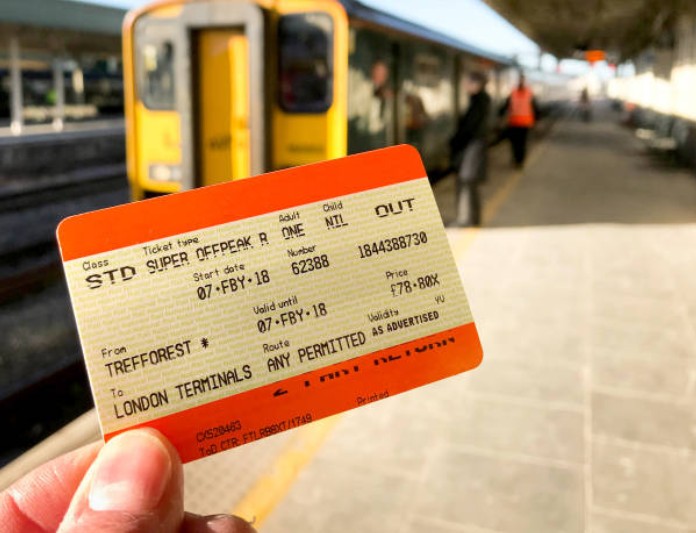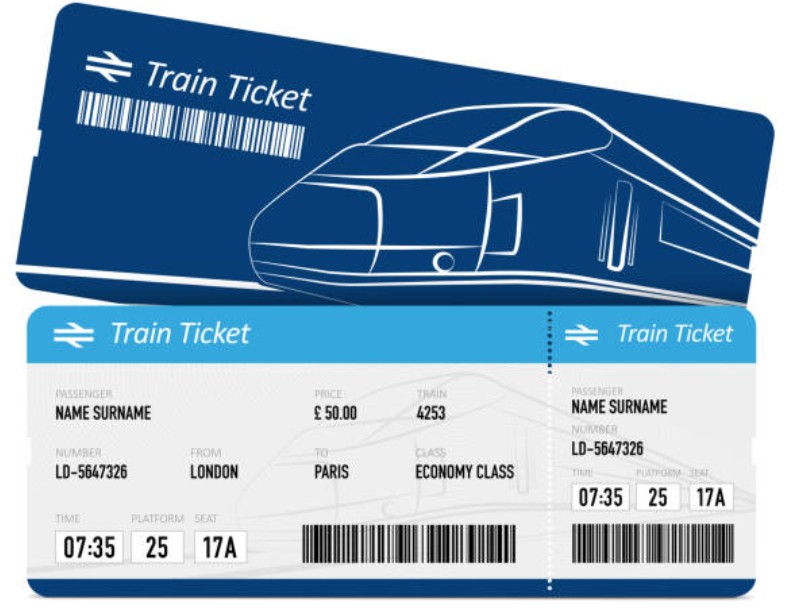Train travel is one of the most convenient and efficient ways to get around the UK, but securing the best fares and preferred seats depends on when you book. A common question among travelers is: “How far in advance can you book train tickets?”
With the UK rail industry evolving and ticketing policies shifting, this guide provides an up-to-date look at ticket booking windows, tips to save money, and future changes in 2025.
Why Should You Book Train Tickets in Advance?
Booking train tickets early has multiple advantages beyond just securing a spot on the train. Understanding how booking works can help you plan trips effectively while keeping travel costs low.
How Does Early Booking Affect Train Ticket Prices?

The earlier you book, the cheaper your ticket is likely to be. Train fares in the UK operate on a demand-based pricing system, meaning:
- Advance tickets are released at lower prices and increase as demand rises.
- Peak-time journeys fill up quickly, making late bookings more expensive.
- Last-minute purchases can be two to three times the cost of advance tickets.
What Are the Downsides of Booking Late?
Delaying until the final moment could result in:
- Limited seat availability – Trains, especially during rush hours, often sell out quickly.
- Higher fares – Standard and flexible tickets are significantly pricier than advance fares.
- Fewer travel options – You may need to choose alternative routes or different departure times.
How Far in Advance Can You Book Train Tickets?
The standard booking period for most UK train operators is 12 weeks (84 days) before departure. However, this varies depending on the rail company and any temporary schedule changes.
Do All Train Companies Follow the 12-Week Booking Rule?
Not necessarily. Some train operators allow booking earlier or later than the typical 12-week window:
- LNER – Allows booking up to 16 weeks in advance on selected routes.
- Timetable Change Periods – In May and December, timetable updates may delay ticket releases.
- Special Promotions & Trials – Certain routes may offer early-access fares for limited periods.
Which Train Operators Release Tickets First?
Different train operators in the UK have varying ticket release policies. Here’s an updated guide for 2025:
| Train Operator | Booking Window | Additional Notes |
| Avanti West Coast | 12 weeks | Standard booking period for most routes. |
| LNER | 12-16 weeks | Some routes allow extended booking. |
| Greater Anglia | 12 weeks | Timetable adjustments may delay availability. |
| ScotRail | 12 weeks | Special promotions may extend the booking. |
| South Western Railway | 12 weeks | Regular updates on timetable changes. |
How Can You Stay Updated on Ticket Release Dates?
With shifting timetables and industry updates, knowing when train tickets are released is essential.
What Are the Best Ways to Check Ticket Release Dates?
To ensure you book as early as possible, use these sources:
- Official train operator websites – Companies like LNER, Avanti, and GWR provide release schedules.
- National Rail Enquiries – A central hub for timetable changes and ticket availability.
- Train booking apps – Apps like Trainline, Railcard, and Train Pal send real-time alerts for ticket releases.
Can You Set Alerts for Ticket Releases?
Yes! Many train ticket booking platforms allow users to sign up for notifications when tickets for specific routes become available. Setting up these alerts ensures you never miss out on the best prices.
How Can You Get the Cheapest Train Tickets?

If you’re looking to save money on UK train travel, follow these expert tips:
What Strategies Help Secure Cheaper Fares?
- Book as early as possible – The best fares are available as soon as tickets are released.
- Use a Railcard – Discounts of up to 1/3 off on most journeys.
- Split ticketing – Buying separate tickets for different legs of a journey can sometimes be cheaper.
- Travel off-peak – Trains outside of rush hour are significantly less expensive.
- Consider alternative routes – Some indirect routes may offer lower fares.
Are Last-Minute Train Ticket Discounts Available?
While rare, some train operators release last-minute deals for under-booked journeys. However, these offers are inconsistent and cannot be relied upon for regular travel savings.
How Is the UK Train Ticket Booking System Changing?
The UK rail industry is undergoing modernisation to improve ticketing convenience.
What Changes Are Expected in 2025?
- Longer booking windows – Some train companies are testing extended ticket availability beyond 12 weeks.
- AI-powered ticket alerts – More personalised notifications based on user preferences and travel history.
- Integrated ticketing systems – Future updates may allow train, bus, and metro tickets to be combined into a single booking.
These updates aim to make train travel in the UK more affordable and passenger-friendly.
Final Thoughts: Book Early for the Best Deals
Exploring “How Far in Advance Can You Book Train Tickets?” is key to saving money and ensuring a stress-free journey in the UK.
To get the best experience:
- Book early (12–16 weeks ahead).
- Use alerts for ticket releases.
- Stay updated on timetable changes.
Plan, travel smart, and make the most of your UK rail journeys!
FAQs
How Far in Advance Can You Book Train Tickets in the UK?
Most UK train tickets can be booked 12 weeks in advance, but some, like LNER routes, allow bookings up to 16 weeks ahead.
Is a Refund Possible for an Advance Ticket?
Advance tickets are generally non-refundable, but some can be exchanged for a small fee.
When Is the Best Time to Book Train Tickets?
The best time is as soon as tickets become available, usually 12 weeks before your travel date.
Do Train Operators Ever Release Last-Minute Discounts?
Some train companies occasionally release last-minute deals, but they are rare. Booking early remains the best strategy.






